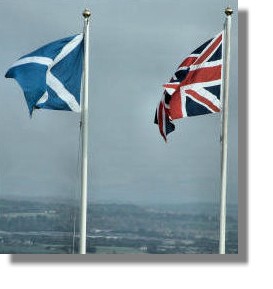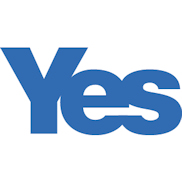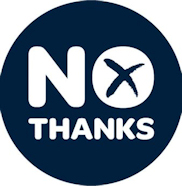Tam's Tall Tales
- Independence Referendum - September 18 2014

Scotland's Saltire flag and United Kingdom's Union JackThis Web site has avoided getting involved in the Referendum debate but such a momentous event could not be allowed to pass without some comment. Here is Tam's assessment, followed by comments from Scottie, the editor of this site.
Tam's Take on the Independence Referendum


Well, it's over now. The people of Scotland have spoken.
It has been a quite remarkable time - I have never experienced anything remotely like this in the political arena in my lifetime. Scots do not generally talk about politics in the street, but this was an exception. Strangers would chat about the latest twist in the campaign early in conversations, perhaps just after the usual platitudes about the weather. The question 'how will you vote?' would be not be posed early, or at all. But you would hear people discuss the latest poll numbers or TV debate, quite readily.
The latter stages of the campaign were almost insufferably exciting, with the pollsters putting one side ahead by a whisker, only to be reversed a few days later. It was not always thus. The campaign started in May 2010 and it was only in recent months that the thing came alive. - with a vengeance.
Some of it was quite ugly. Too often the debate descended to insults. There were also some chauvinistic anti-English commentaries.
And, of course, there had to be a loser. It was a classic 'pistols for two, coffee for one' situation. I have lived in the same neighbourhood for years. When I go down to the shops I can nod or chat to any number of friends and acquaintances. I do not like to think that a fair proportion of them might feel distressed at the outcome.
The divisiveness of the issue was pronounced throughout. Glasgow and Dundee voted Yes, Aberdeen and Edinburgh were solidly No. West and East Dunbartonshire were on differing sides, as were North and South Lanarkshire
Now we had better just get on with it. Will there be another referendum? Possibly, but hopefully not for years.
In the immediate aftermath of the result, Alex Salmond who is the longest serving First Minister in the Scottish Parliament since it got going again in 1999, resigned from that post and also as leader of the Scottish National Party. He is a formidable politician - probably the best in the UK and possibly the most able in Europe.
Tam
Independence Referendum, by Scottie, Editor of Rampant Scotland
Background
On Thursday 18 September after more than two years of campaigning, the people of Scotland voted on the question "Do you agree that Scotland should be an independent country?" It seems such a simple question and for many people it required no deep thought - they instinctively knew the answer, even if they came to a different conclusion to one another. Some had dreamed for many years of no longer being under the control of a government 400 miles away in London (which they blamed for many of the ills besetting Scotland both in the past and today) while others feared the unknown and didn't trust the promises of politicians.As the campaigning progressed, the gap between the "No" supporters (by now using the marketing banners of "Better Together" and "No Thanks")and the "Yes" campaigners, arguing for an Independent Scotland, began to narrow. In recent months the arguments have become very heated. Differing conclusions and facts from the politicians involved is only to be expected but different experts in various fields also kept producing reports that disagreed with one another - creating more heat than light! I still don't have a reliable assessment of the future financial benefit of oil revenues from the seas around Scotland, for example. Depending on who you believe, Scotland might have been one of the richest countries per head in the world - or bankrupt when the oil runs out (whenever that is...) Of course, many voters did not care whether Scotland would be better or worse off financially. Major principles and deep passions were involved.
Results
With opinion polls in the later stages suggesting the opposing views were neck and neck, it was an exciting night after the polls closed at 10pm on 18 September. Staff were on hand to immediately count the votes through the night so that the final result could be announced as early as possible the following morning. It soon became clear that the "No" vote going to win the contest - and that the United Kingdom would continue with its current four countries of England, Scotland, Wales and Northern Ireland. The final count showed that the "No" view won with 2,001,926 votes over 1,617,989 for "Yes" (55.3% No and 44.7% Yes). The "No" vote had a majority in 28 of the country's 32 local authority areas - although Glasgow, the biggest local authority, had a 53.5% "Yes" result. Detailed figures for all the Scottish counties can be found on the BBC Scotland Referendum Results Page.Newspapers vied with one another to have eye-catching headlines on 19 September. I thought the "Sun" newspaper, well known for snappy, pointed headlines, got it right with "Re-United Kingdom"!
Why a Referendum?
The United Kingdom, effectively created in 1707, became a world power and a leader in the Industrial Revolution and created an Empire where "the sun never sets" (with Scotland contributing greatly to that history). You might ask how it was that the government in London accepted that a vote by Scotland, with just 8% of the total population, could result in the break-up of the entire United Kingdom - without the other countries in the union having any direct say in the matter. But with the historically dominant political parties in disarray in recent years, the Scottish National Party gained an overall majority in the Scottish Parliament. It may be that many who voted them into power did not support their plan to hold a referendum on independence (opinion polls at that time consistently showed that support for that was in the 30-40% range). But the Westminster government decided to accept the "democratic will of the Scottish people" - perhaps believing that it would be a decisive "No" vote.People Got Involved
A major positive aspect has been that after years of ordinary people becoming apathetic about the political process and declining percentages bothering to turn out to vote, the Independence Referendum got many people in Scotland galvanised and the numbers registered to vote rose to an all-time high and the actual voter turnout on Thursday reached the unprecedented level of 84.6% with some areas over 90%. Combined with 16 and 17 year-olds able to vote for the first time, there were more votes cast than in any other political election.
More Powers for Scottish Parliament
As the prospect of the break-up of the UK became a distinct possibility, UK political party leaders agreed that if there was a "No" vote, they would nevertheless transfer more power and decision making to the Scottish Parliament - arguing that this way Scotland could have their cake and eat it too. Whether that had any effect on the final result is impossible to say at this stage. Perhaps a passionate late contribution by former UK Prime Minister Gordon Brown, A Scot, influenced some people too.
Understandably, England, Wales and Northern Ireland are also keen to get more influence in decision-making in their areas and that is also being addressed. So the political landscape of the United Kingdom will certainly be radically changed - and Scotland has been instrumental in achieving that. Whether they voted "Aye" or "Naw", all the Scots who voted passionately believed in Scotland and its success - they just had differing views on how it was to be achieved.
Scottie, Editor of Rampant Scotland.
Tam O'Ranter
May 2014Return to Tam O'Ranter Index



